

You can read part two of this interview here.
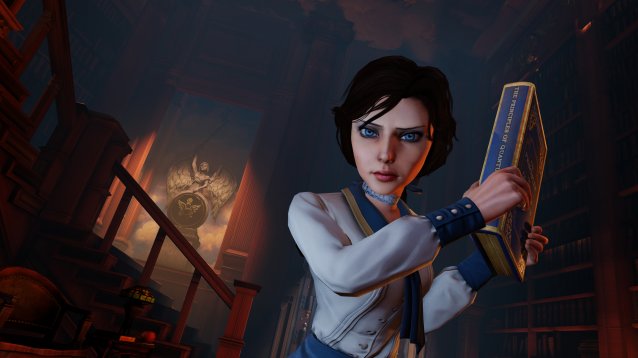
In a quiet street just off Covent Garden lies the Covent Garden hotel, a five star piece of luxurious Columbiana and no better place to showcase the delights of BioShock Infinite. The Tiffany Library is positively crammed with impossibly priceless paintings, knick-knacks and doodads, a place where I couldn't feel more out of place. Off to the side and through a closed door was the game itself, accompanied by the delightful Mike Soden, assistant producer at Irrational and someone who clearly cares very deeply about all things BioShock.
Upon arrival and being a responsible excuse for a writer, I make the obligatory checks to all necessary equipment. Lo and behold, utter disaster strikes and the 21st century fails me once more; my dictaphone is dead, or at least appears deceased, even after charging it overnight, with every indication it was basking in rude health, bugger. I'm reliably informed the nearest technology shop is a good 20 minute round trip, desperately eating into any sit-down, shut-up time with Infinite. As quick as a flash, Mister PR stepped up and offered to run out for a charger, whilst I bumbled about Columbia's boardwalk like a sweaty tourist. They're not all bad, you know, and this interview would've have taken place otherwise.
An hour later I returned to the Library, bitterly disappointed I hadn't gotten to meet Elizabeth but buzzing from an impromptu natter with Mr. Soden. Before my eyes is Drew Holmes, pre-occupied with his phone, perhaps in an attempt to stave off the crushing jet lag brought about by a flying 72 hour visit to London. It turns out the dictaphone wasn't dead at all and at full battery, but needed a jump-start.
The first thing which strikes me about Drew is he sort of looks like Levine in miniature. Maybe it was his vaguely similar haircut and facial garb, or the fact he seemed unimpressed by yet another feckless dreg enamoured by Infinite and desperately underprepared. Again.
Drew was part of the writing team on Saints Row The Third, quite the startling leap to BioShock Infinite, joining Irrational in March 2012. In fact in games terms, I'm not sure they could be further apart both in terms of narrative, mechanics and basically everything. Straight from third person 12” floppy fanfare to the spiritual successor to the quintessential work of narrative fiction? Yikes, that's a tall order right there. Holmes had the luxury of working on not just the Saints row series, but also Red Faction Guerilla and Armageddon. During his time at Volition, now owned by Koch Media, I ask what sort of experiences was he able to extract and take over into Irrational.
DH: I think you just learn what works in video games and what doesn't. More often than not what works best in video games is brevity. Just making sure that things are short and concise because you never want to get in the way of the players' gameplay experience. I pride myself on being to stretch a little bit and write for a lot of different genres and Infinite's an entirely different beast. not just tonally, but also the style of game. This FPS, where there are no cutscenes, is told from Booker's perspective.
There's quite a bit of a learning curve, y'know the easiest thing to do in most games is to have a cutscene if you want the player to have a little bit of story, we utilised them all the time in the games I've worked on previously and here it's different. Here we don't have that luxury of cutting away to cutscenes, you've constantly to be wondering, if you're writing any sort of scene in the game, what is it about the scene that's unique enough to grab the player's attention, to force them towards what you want them to look at, and pay attention to. And at the same time, not wasting their time. So it's a challenge, but ultimately it's been one that's been worth it and I think that the game is something, having been a part of this is something I'll hold with me for a very long time.
So far, so standard. The fundamentals of creating interactive fiction and the BioShock approach to storytelling. I then go on to ask about how daunting it is coming off of those sort of games, in to a BioShock game which, at that point, had been in development for 3-4 years.
DH: It's daunting for the perspective of what the BioShock name represents, not necessarily the development length. I think that the one thing about Irrational is the team is incredibly demanding of itself and continually tried to innovate and create an experience that you haven't really seen before in any other game. And I think it tackles big problems from a mechanical standpoint, with Elizabeth and the companion AI, that really hasn't been done in a way that we're doing it since Alyx [Vance] in Half Life 2. The Skyline system, to this complex story of Booker and Elizabeth and Columbia. I think that it's about really challenging yourself and thinking of the super-hard thing that no-one else wants to do and trying to figure out a way to do it.
Have I stirred something, here? I think I asked the question wrongly and focused on the development time, leading Drew off on a wild AI-fueled tangent, something I can't even begin to discuss due to my blastedly inquisitive nature of exploring, within a BioShock game.
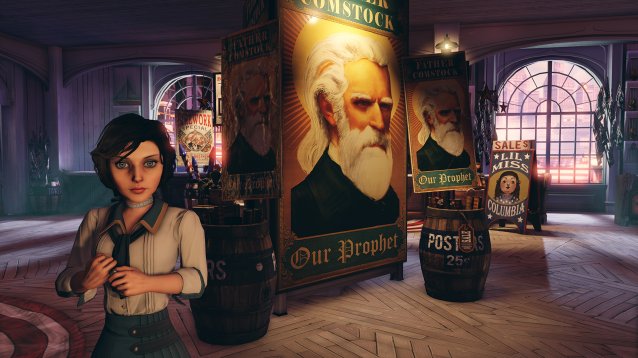
Having only joined back in March 2012, for some games that's an entire development cycle, a generous time when you consider cosmic abortions like 007 Legends. Yet Infinite hadn't been publicly demoed since E3 2011, and only sporadically trailered in 2011. So how much has Infinite changed in that time?
DH: There are certain aspects that have changed a lot, and there are certain aspects that have changed very little. I think one of the really inspiring things about working at Irrational is the willingness to throw stuff away and start over, make it better. It's an iterational process that I think I'm familiar with, being a writer, you write and then you rewrite and you throw things away and you rework. I think that's pretty much the style of how we develop games at Irrational and I think it's due, largely in part to having Ken being the leader of the studio. He's a writer first and foremost and that's just what he's used to, he know that's how you make the quality of your product better. I think that it's certainly not without its heartbreak or head-butting and I think often, sometimes people work on something and invest so much of themselves, to see it get thrown away.
Almost like it's their 'child'. I don't know the ins-and-outs of most studios' approach to storytelling, but Irrational's willingness to chop, change and rework seems remarkably refreshing.
DH: Yeah, exactly. My philosophy is 'kill your babies'. Don't become so attached to something that you can't be willing to throw it away, because in the end you're not doing it a service, you're not doing yourself a service and you have to be willing to take something that you're really attached to, if you know how to make it better, no matter how hard it is and how much pain its gonna cause and how much work you're going to have to throw back in to it, at the end of the day it's worth it if your goal is to create a great piece of art.
No question here how Drew, and Irrational, feel about the age-old games-as-art debacle, something I'm not going to tip-toe into here as I think it's a matter a plain as the boredom on Holmes' face. There's also the plainly obvious follow-up question; was this the case with the multiplayer component?
DH: Partially. I think we play around with a lot of different systems at Irrational. I think you're always experimenting with what elements are going to make the best possible game experience and I think we were clear from the beginning that nothing was going to go into the game if it didn't reach a certain quality bar. It wasn't bringing anything new to the table. We toyed around with multiplayer, we also toyed around with lots of other things in the game: different weapons, different systems and full levels that got cut, so it's been interesting to see the focus of one aspect of the game when there was so much other stuff that we also tend to remove over the course of game development. It's true on every game that I think people work on, there's always stuff you tend to throw out. At the end of the day it was a matter of 'yeah, this isn't really working to a level that we feel is representing the BioShock brand and Irrational games, so it's not worth investing any more time in'.
How candid, to expressly state that Infinite's multiplayer simply wasn't good enough and that it didn't serve to innovate. I'm sure the addition of a multiplayer component would've have harmed the game in any particular way, but such a discerning approach to additional, superfluous content really shows Irrational's desire to create a single, self-contained piece of art. Drew also seems slightly miffed that I only brought up the multiplayer, rather than the myriad of other hitherto unknown pieces of development junk. Ho hum.
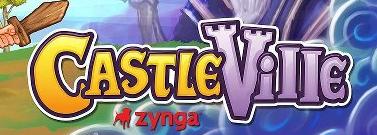
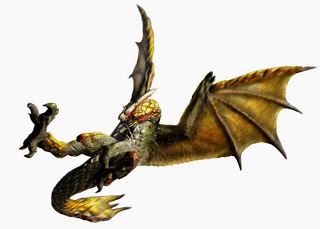
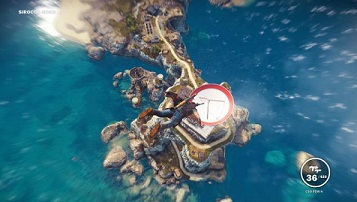
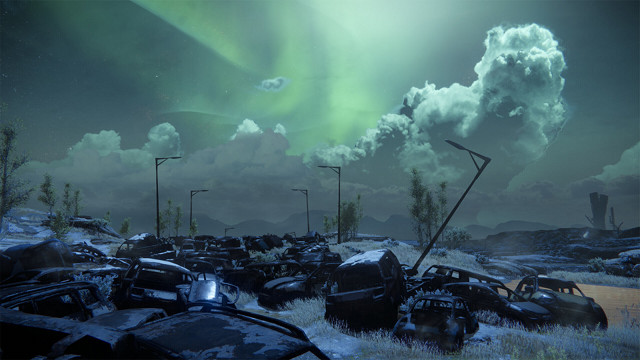
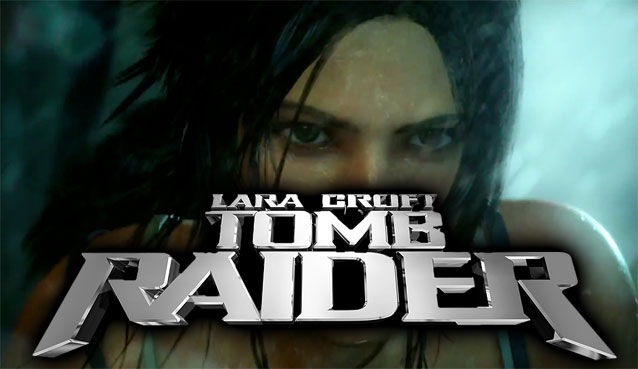 Tomb Raider Series: The Evolution of Lara Croft
Tomb Raider Series: The Evolution of Lara Croft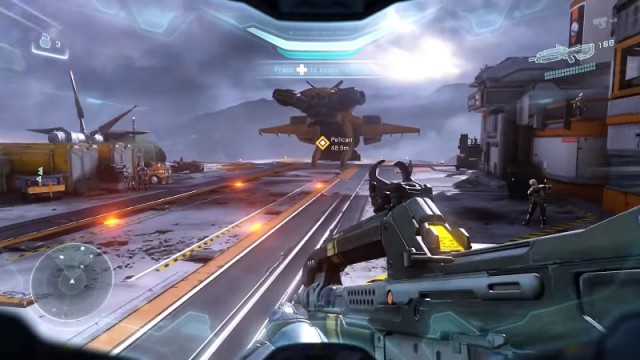 Mission 4 - Meridian Station: Halo 5 Guardians Guide
Mission 4 - Meridian Station: Halo 5 Guardians Guide Top 10 Racing Games on the Xbox 360
Top 10 Racing Games on the Xbox 360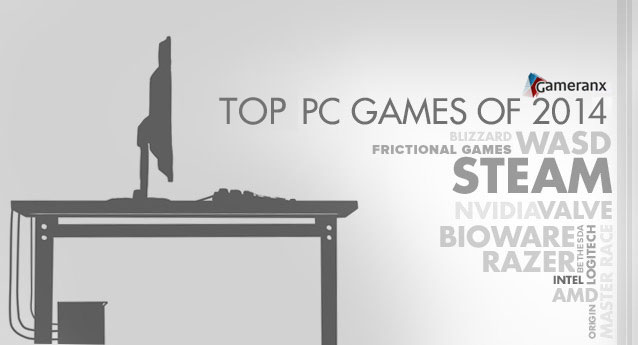 The Best PC Games of 2014
The Best PC Games of 2014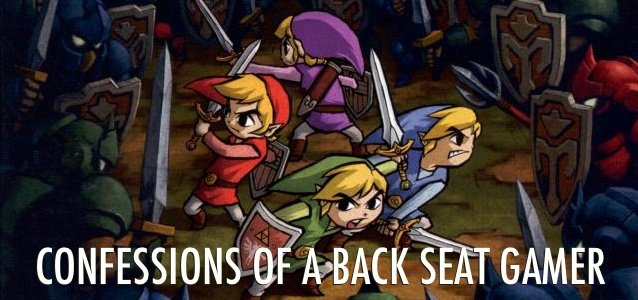 Confessions of a Back Seat Gamer: The Social Possibilities of Single Player
Confessions of a Back Seat Gamer: The Social Possibilities of Single Player